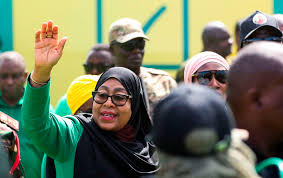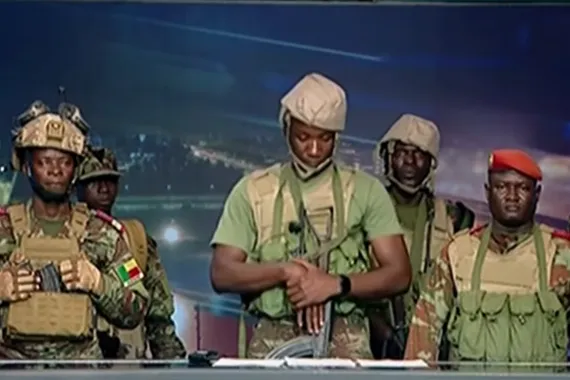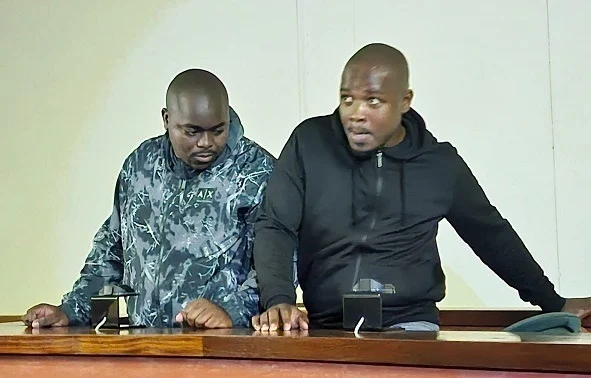International News
Chiwenga’s Bold Gesture in Tanzania Signals a Diplomatic Reawakening

By Shelton Muchena | Global Affairs Correspondent
Dar es Salaam — There are moments in political history when symbolism outweighs speeches, when a single gesture carries the emotions of millions and the scrutiny of the world. On a warm Tanzanian afternoon at the inauguration of President Samia Suluhu Hassan, Zimbabwe’s Vice President Constantine Chiwenga authored one such moment and in doing so, reshaped how he is seen both at home and abroad.
Amid the dignitaries bearing ornate gifts of celebration, Chiwenga arrived carrying something startlingly different: a heavy iron keg. It was not crafted for elegance, nor meant to flatter. Instead, it represented Zimbabwe a nation brimming with promise yet burdened by history, celebrated for resilience yet scarred by struggle. The keg was said to hold the dualities of a country still defining itself: sacrifice and triumph, hardship and hope, containment and potential.
Eyes followed him. Doubts followed him too. From a background rooted in military power and political turbulence, Chiwenga has long been a figure judged by his past rather than his intentions. Many anticipated a misstep. Many expected a moment that would reinforce old narratives. But what unfolded was a quiet transformation.
Chiwenga carried the keg not with reluctance or fear, but with a poise that spoke of responsibility. Each stride was deliberate, steady, respectful a recognition of the weight he bore on behalf of a nation. When he reached President Samia, he set the keg gently before her, and in a voice measured by humility and certainty, he declared:
“This is Zimbabwe strong, resilient, forged in sacrifice, and ready to redefine its future through partnership.”
The auditorium, alive moments before, fell into thoughtful silence. In that brief stillness, a powerful message was received: Zimbabwe is not pretending to be unbroken. It is choosing to be unafraid of its truth. And through that truth, it seeks renewed relationships and regional trust.
President Samia placed her hand upon the cold metal in acceptance not only of the symbolic gift, but of the hope and friendship sealed within it. Diplomats around them nodded, murmuring in admiration. The gesture, unexpected in its sincerity, revealed a Chiwenga willing to evolve to act not as a commander imposing authority, but as a representative earning respect.
Critics, prepared to pounce, instead found themselves acknowledging a moment of diplomatic maturity. Observers called it a breakthrough, a calculated yet courageous step forward. For once, the narrative surrounding Chiwenga was not anchored to controversy, but to an elegant act of statesmanship that left little room for dismissal.
It is no secret that Zimbabwe seeks to repair strained relationships and rekindle continental cooperation. Its people yearn for stability, dignity, and a fair reintroduction to the world stage. This gesture, though symbolic, was a testament to that yearning a statement that Zimbabwe is ready to participate, contribute, and rise again through unity rather than isolation.
Yet symbolism, as powerful as it is, must now be matched with action. The world waits to see whether this diplomatic spark becomes a sustained fire guiding Zimbabwe toward renewal. But on this day in Tanzania, progress did not come through grand declarations or political bravado. It came through humility and the courage to carry a national burden openly.
In Dar es Salaam, Constantine Chiwenga carried Zimbabwe and he did not drop it. He placed its story, its struggle, and its future on the table of friendship. And in that gesture, he did something few expected:
He impressed.
He redeemed.
He signaled a new beginning.
For the first time in a long time, the applause that followed was not merely ceremonial — it was hopeful. And as the cameras captured this defining moment, one truth became clear:
Zimbabwe is stepping forward, and the world has turned its gaze to watch.



